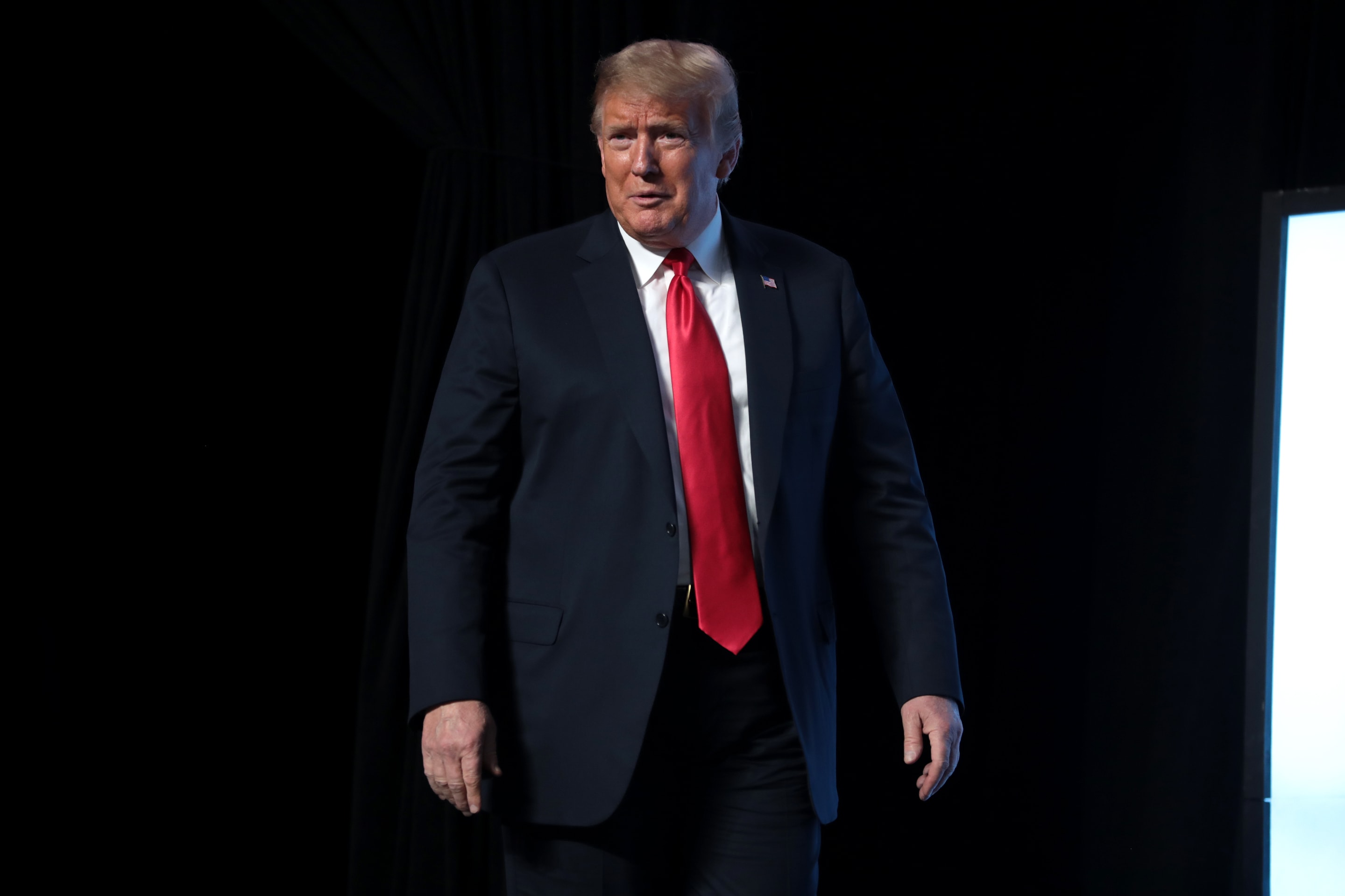
Should Forced Arbitration Agreements For Employees Be Banned? (H.R. 7109)
Do you support or oppose this bill?
What is H.R. 7109?
(Updated December 29, 2020)
This bill — the Restoring Justice for Workers Act — would prohibit forced arbitration in employment disputes, barring employers from requiring employees to waive their rights to engage in joint, class, or collective legal action. It would also reverse the Supreme Court’s 5-4 in Epic Systems v. Lewis, which allowed businesses to require employees to settle disputes through arbitration instead of pursuing class action lawsuits.
Argument in favor
Forced arbitration clauses make it harder for workers to seek justice when they experience workplace harassment, discrimination, and other misconduct. Reversing the Supreme Court’s ruling in Epic Systems v. Lewis is necessary to preserve this worker protection.
Argument opposed
Arbitration is less costly and time-consuming than class action lawsuits, allowing all parties involved in an employment dispute to resolve the dispute quickly and efficiently. Prospective employees that don’t agree to using arbitration to settle future disputes can go work elsewhere.
Impact
Workers; employment contracts; labor disputes; and the Supreme Court.
Cost of H.R. 7109
A CBO cost estimate is unavailable.
Additional Info
In-Depth: Rep. Jerrold Nadler (D-NY) introduced this bill to overrule the 2018 Supreme Court decision in Epic Systems v. Lewis by ending forced arbitration clauses and protecting workers’ abilities to pursue work-related claims in court:
“For far too long, corporations have tied the hands of American workers through the use of forced arbitration clauses, which are often buried in the fine print of employment contracts and used as a precondition for employment. Forced arbitration strips working Americans of their day in court to hold employers accountable for wage theft, discrimination, harassment and many other forms of misconduct. I am proud to introduce the Restoring Justice for Workers Act to finally put an end to this exploitation of American workers and to ensure they have equal protection under the law to hold their employers accountable for illegal behavior.”
The National Employment Law Project (NELP) and Fair Arbitration Now Coalition, comprising of the Alliance for Justice, Americans for Financial Reform, AFL-CIO, AFSCME, and others, supports this legislation:
“Forced arbitration clauses are ubiquitous in corporate contracts with consumers and workers. These fine-print terms require disputes to be resolved in private arbitration proceedings instead of in court. In addition, the clauses often block class actions, barring individuals from banding together to resolve related claims. Forced arbitration is not a legitimate alternative method for workers to resolve disputes with their more powerful employers. Individual forced arbitration cannot address widespread harm and misconduct, such as wage disputes, systemic discrimination and harassment, which can impact large groups of employees in a workplace. In addition, forced arbitration squashes valid legal claims from ever going forward by sending them to a secretive process and forcing complainants to act on their own, which can be too costly of an endeavor particularly if the individual claim is relatively small… The Restoring Justice for Workers Act correctly recognizes the fundamental rights and protections at stake. We strongly support this bill that would reinstate worker protections by eliminating forced arbitration clauses and class action bans in employment contracts, and would ensure that arbitration is truly voluntary, allowing all parties to choose court or arbitration after disputes arise.”
Justice Ruth Bader Ginsburg, who dissented in the Epic Systems v. Lewis decision, called the Court’s decision “egregiously wrong” and argued that the decision would lead to “huge under-enforcement of federal and state statutes designed to advance the well being of vulnerable workers.”
In a post on the Economic Policy Institute’s Working Economics blog, Celine McNicholas and Heidi Shierholz argue that the new Democratic House should make worker empowerment a priority. As part of that agenda, they argue that this bill should be a top priority for the Democratic majority.
When the Supreme Court ruled on Epic Systems v. Lewis, the majority argued that there are policy arguments on both sides of the issue when it comes to forced arbitration agreements, but concluded that the role of the courts is to interpret governing statutes. In the majority opinion, Justice Neil Gorsuch wrote:
“The respective merits of class actions and private arbitration as means of enforcing the law are questions constitutionally entrusted not to the courts to decide but to the policymakers in the political branches where those questions remain hotly contested.”
This bill has the support of 58 House cosponsors, all of whom are Democrats. There is a Senate companion bill to this legislation, sponsored by Sen. Patty Murray (D-WA) and seven other Democrats.
Of Note: In a 5-4 decision in May 2018, the Supreme Court held in Epic Systems v. Lewis that employers can use forced arbitration clauses that require workers to settlement disputes with their employer through arbitration and waive their right to pursue class action lawsuits.
In 2017, the Economic Policy Institute reported that around 60 million American workers are subject to mandatory employment arbitration procedures.
Media:
-
Sponsoring Rep. Jerrold Nadler (D-NY) Press Release
-
Fair Arbitration Now Coalition Letter (In Favor)
-
National Employment Law Project (NELP) Press Release (In Favor)
-
New York Times (Context)
-
Economic Policy Institute (Context)
-
Epic Systems Corp v. Lewis (Context)
Summary by Lorelei Yang
(Photo Credit: iStockphoto.com / utah778)
The Latest
-
 IT: 🛢️ New Vermont measure could charge Big Oil for climate damages, and... Do you think Trump is guilty?Welcome to Friday, May 10th, friends... Vermont could be one of the first states to hold Big Oil accountable for the damages read more...
IT: 🛢️ New Vermont measure could charge Big Oil for climate damages, and... Do you think Trump is guilty?Welcome to Friday, May 10th, friends... Vermont could be one of the first states to hold Big Oil accountable for the damages read more... -
 Stormy Daniels Takes the Stand in Trump Hush Money TrialUpdated May 9, 2024, 5:00 p.m. EST Adult film star Stormy Daniels, also known as Stephanie Clifford, spent two days on the stand read more... Law Enforcement
Stormy Daniels Takes the Stand in Trump Hush Money TrialUpdated May 9, 2024, 5:00 p.m. EST Adult film star Stormy Daniels, also known as Stephanie Clifford, spent two days on the stand read more... Law Enforcement -
 Vermont Measure to Charge Big Oil for Climate DamagesWhat’s the story? Vermont is expected to become one of the first states to hold Big Oil accountable for the damages caused by read more... Environment
Vermont Measure to Charge Big Oil for Climate DamagesWhat’s the story? Vermont is expected to become one of the first states to hold Big Oil accountable for the damages caused by read more... Environment -
 IT: Trump's 2016 'deny, deny, deny' campaign strategy, and... How can you help the civilians of Ukraine?Welcome to Wednesday, May 8th, weekenders... As Trump's hush money trial enters it's third week, the 2016 campaign strategy of read more...
IT: Trump's 2016 'deny, deny, deny' campaign strategy, and... How can you help the civilians of Ukraine?Welcome to Wednesday, May 8th, weekenders... As Trump's hush money trial enters it's third week, the 2016 campaign strategy of read more...
 Climate & Consumption
Climate & Consumption
 Health & Hunger
Health & Hunger
 Politics & Policy
Politics & Policy
 Safety & Security
Safety & Security
